LA-based Swiss photographer turns lens on his Alpine village
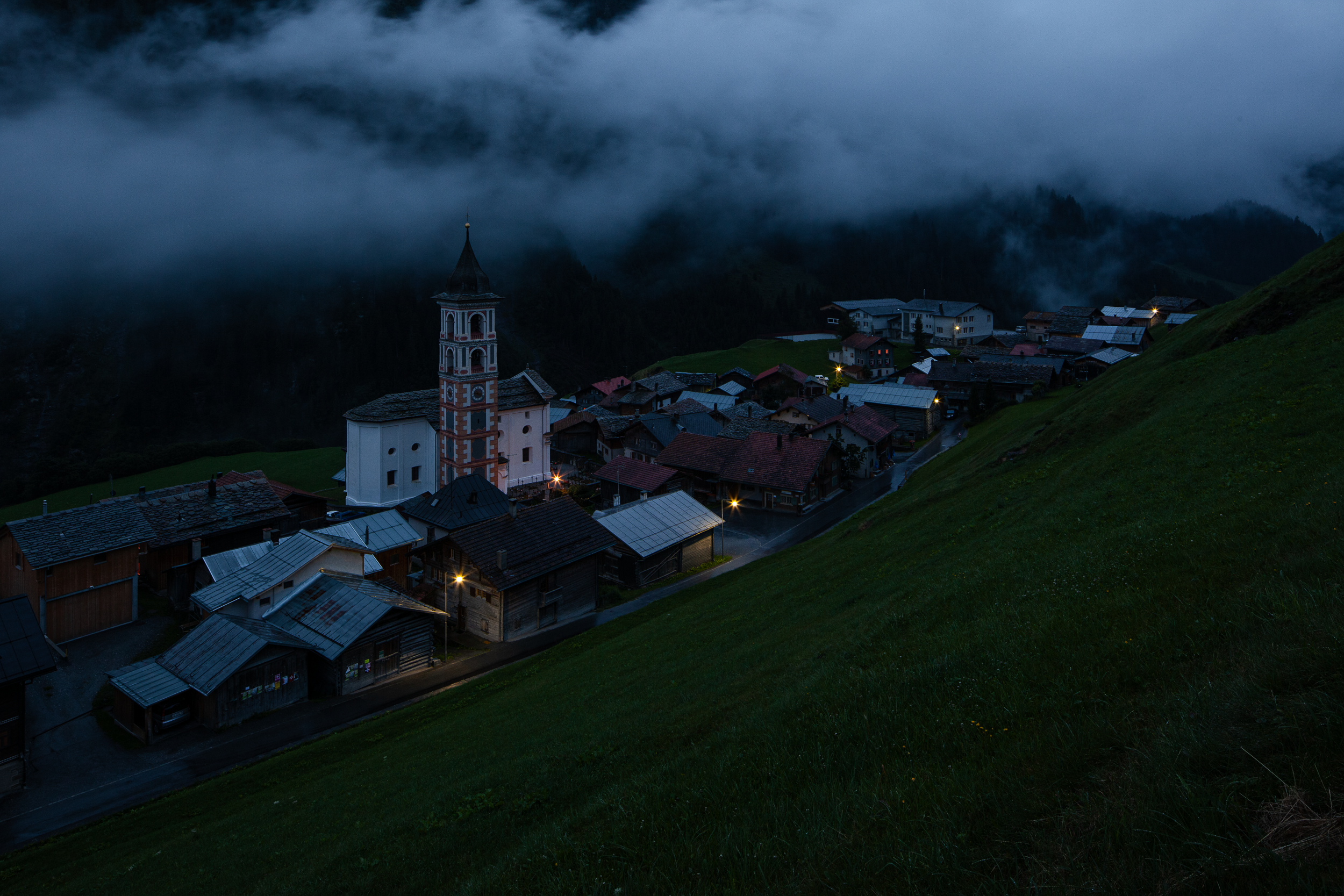
For 30 years, Verner Soler, a Swiss photographer who lives in Los Angeles, has travelled back to Vrin in southeastern Switzerland to capture everyday life in the small mountain village where he grew up.
Verner Soler says he feels like an ascending diver when he travels from his current home, the vibrant metropolis of Los Angeles, to his hometown, the idyllic village of Vrin in canton Graubünden.
Soler emigrated to America over 30 years ago and has built a life there with his family. He works as a creative director at the advertising agency Saatchi & Saatchi, where he creates campaigns for brands such as Toyota.
Vrin – Home through an Emigrant’s Lens | Flüchtige Heimat | Bandunar e mai schar dar is a photo book which was published in September 2024 by Chasa Editura Rumantscha CER.
But he says he only feels a real sense of being home in Vrin, a Graubünden mountain village in Val Lumenzia. “Home is the connection to both the people and the land,” he says. He finds the former in Vrin and Los Angeles – the latter only in Vrin.
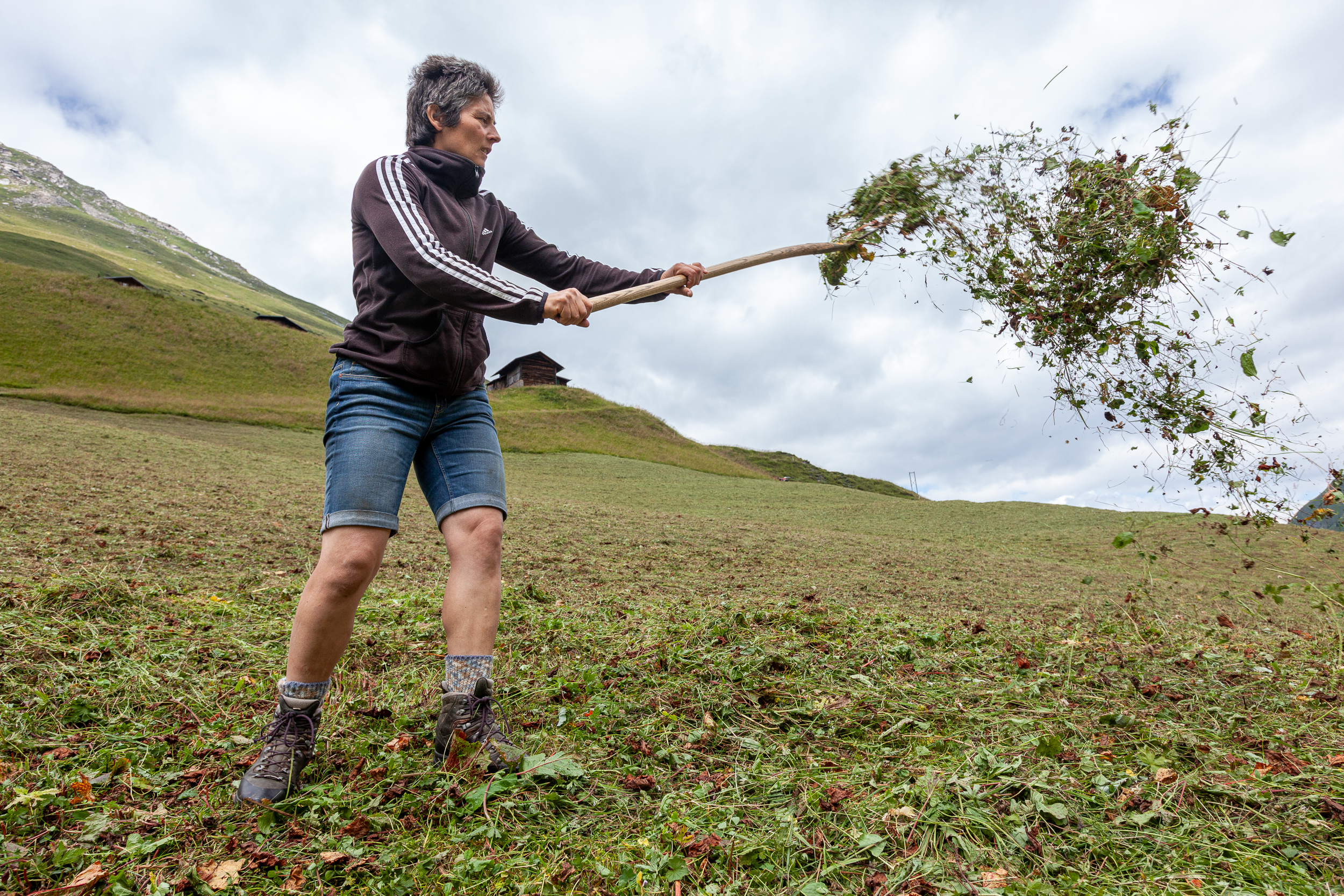
His urge to maintain a connection to his homeland and “schar encrescher” – Romansh for homesickness – prompted Soler to write the book Vrin – Flüchtige Heimat [Home through an Emigrant’s Lens]. It is a book of photographs and texts in German, English and Romansh that gives insights into life in the Swiss mountain village.
In search of answers
Verner Soler did not initially plan to move to the US. He trained as a teacher and taught in Vrin for six months. “But I already knew during my training that this profession wasn’t for me,” he says. That worried him. Having been rather shy and sensitive from a young age and firmly connected to the village of Vrin, he was afraid of the outside world. It was only when he decided not to become a teacher that he realised he had to go out into the wide world.
However, this unsettled him: “Everyone around me knew what they wanted and who they were. I, on the other hand, had the feeling that something was wrong with me.” Looking back, says Soler, this was not an atypical feeling for a young man of that age.
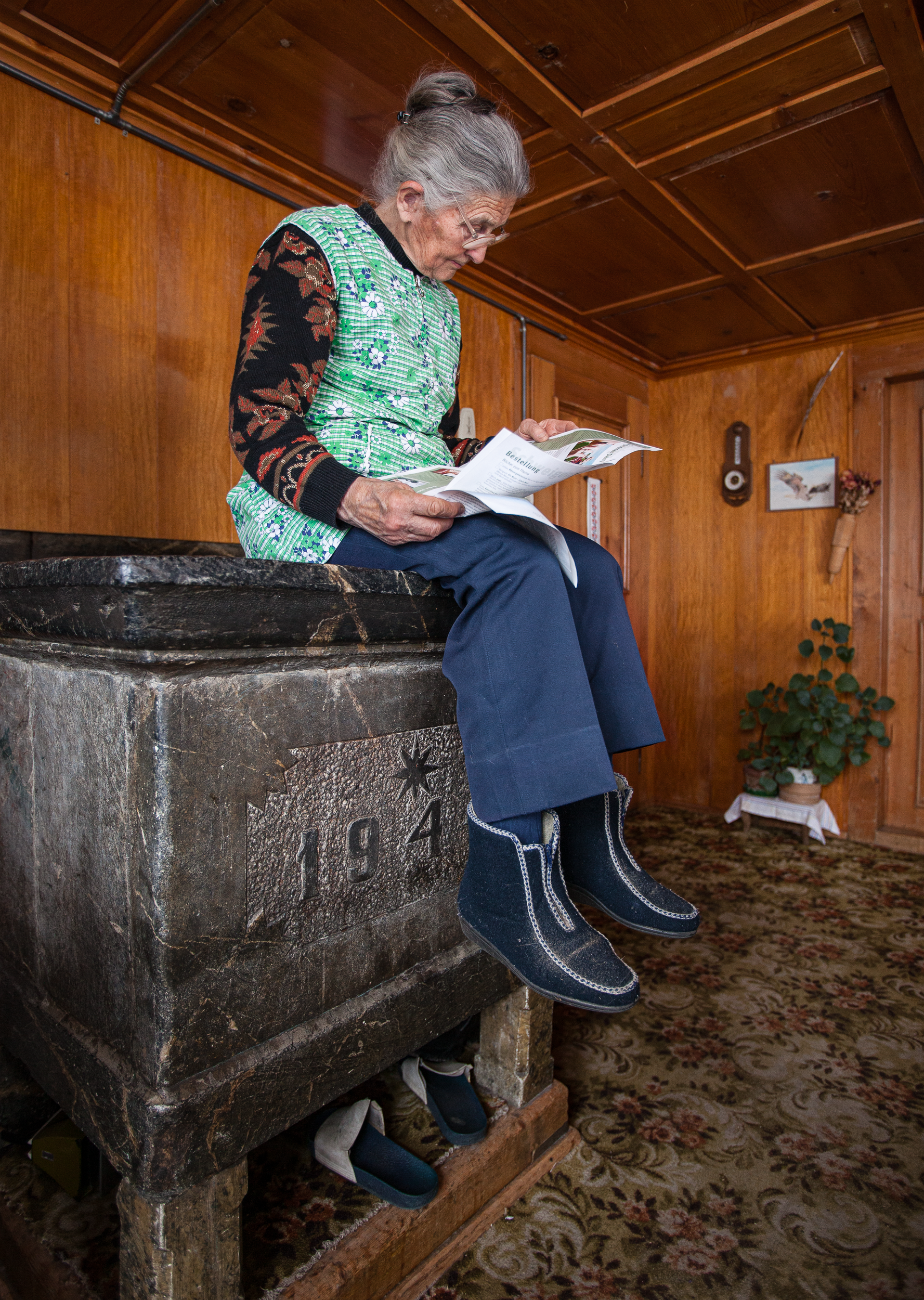
Nevertheless, this insecurity weighed heavily on the teenager. His interest was awakened when he was taught psychology at teacher training college. “I quickly realised that somewhere there were answers to my questions,” he says. Soler became more involved with the subject and came across a therapy opportunity in Los Angeles in the mid-1980s.
Although travelling to Zurich scared him, another fear prevailed. “In the end, the fear of not going was bigger than that of going. I didn’t want to spend my life wondering what could have been,” he says.
He obtained a US visa for six months, then extended his stay to a year and – after briefly living illegally in America – he was “lucky enough to win a green card in the lottery at the time”.
His parents and close friends knew about the therapy. But everyone else thought Soler went to America “to learn English and maybe study psychology. Mental health was so stigmatised back then. I only started talking more openly about therapy about ten years ago.” This was deliberate: “When I was 17 or 18, it would have helped me a lot if people had talked openly about therapy and mental health. I would have felt less different.”
Vrin is in his heart
In 1993 Verner Soler visited Vrin and watched his father making cheese – for the last time. “I felt the urge to capture this image. That’s my story, that’s how I grew up. When these things are no longer there, a part of my life is also gone,” says Soler. He took photographs to preserve his history, “like an archivist”.
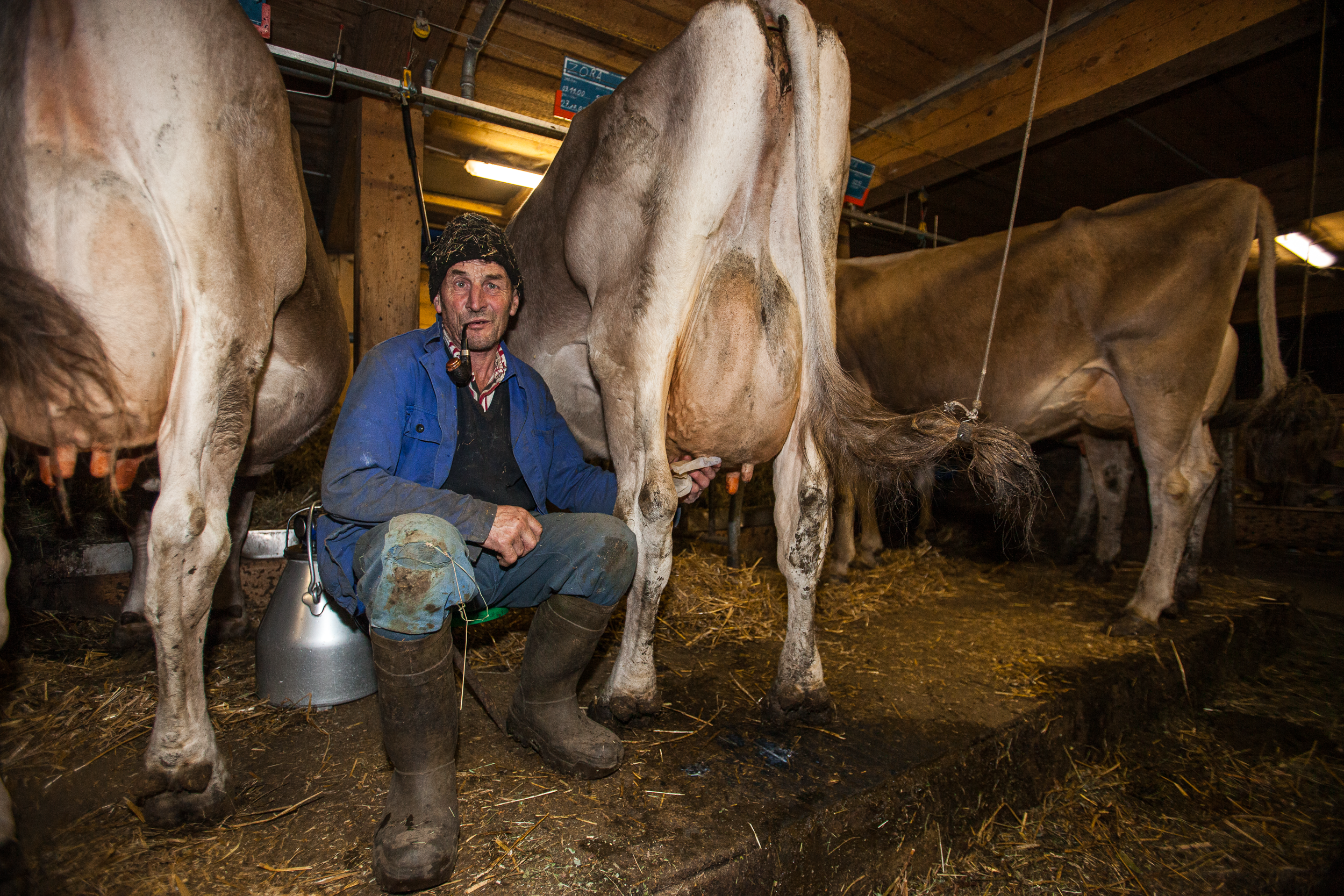
The 56-year-old discovered his love of photography during his teacher training programme. A good friend owned a Minolta camera. He used to marvel at the photos in his cramped student flat in Chur using a slide projector. He soon got his first camera from a friend who no longer needed it and scraped together money for his first film. “For me, photography was always my art, where I could do whatever I wanted,” he says.
Home through an Emigrant’s Lens is a photographic diary that meticulously and sensitively documents life and change in the Graubünden mountain village over the last 30 years, while also spreading a touch of nostalgia and melancholy with panoramic shots.
“It’s my way of dealing with homesickness and maintaining a bond with the village and the family,” writes Soler in the foreword. He felt this bond most strongly in the portraits. In the old kitchen his uncle is sitting on a chair while Soler’s father is standing behind him, cutting his hair; Soler’s mother, in a green apron with a newspaper in hand; an elderly man in a faded purple shirt, hammer in hand, scythe across his knee.
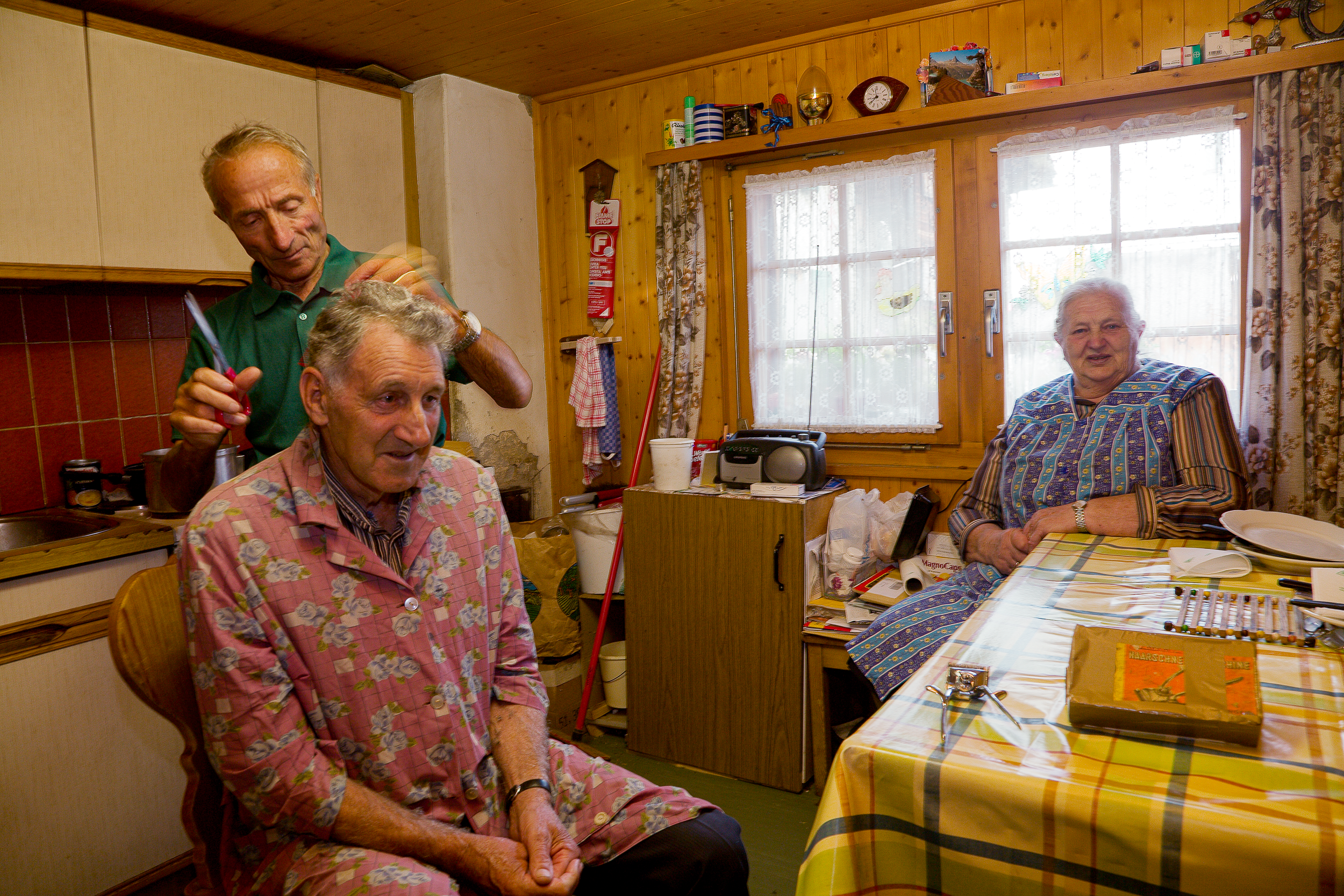
Soler’s portraits are not posed. He sat with the people in their homes and visited them at work. They talked about old times and at the right moment he took a shot. “These moments were very close and personal. People still saw me as someone from Vrin. This was an important feeling,” he says.
Leaving, in order to come back
The photographs of the people, traditions and everyday situations from Vrin form the core of the photo book, but it also comes to life through its captions and texts, which Soler has written in English, German and Romansh. According to the publisher, it is the first Romansh book to appear on the US book market.
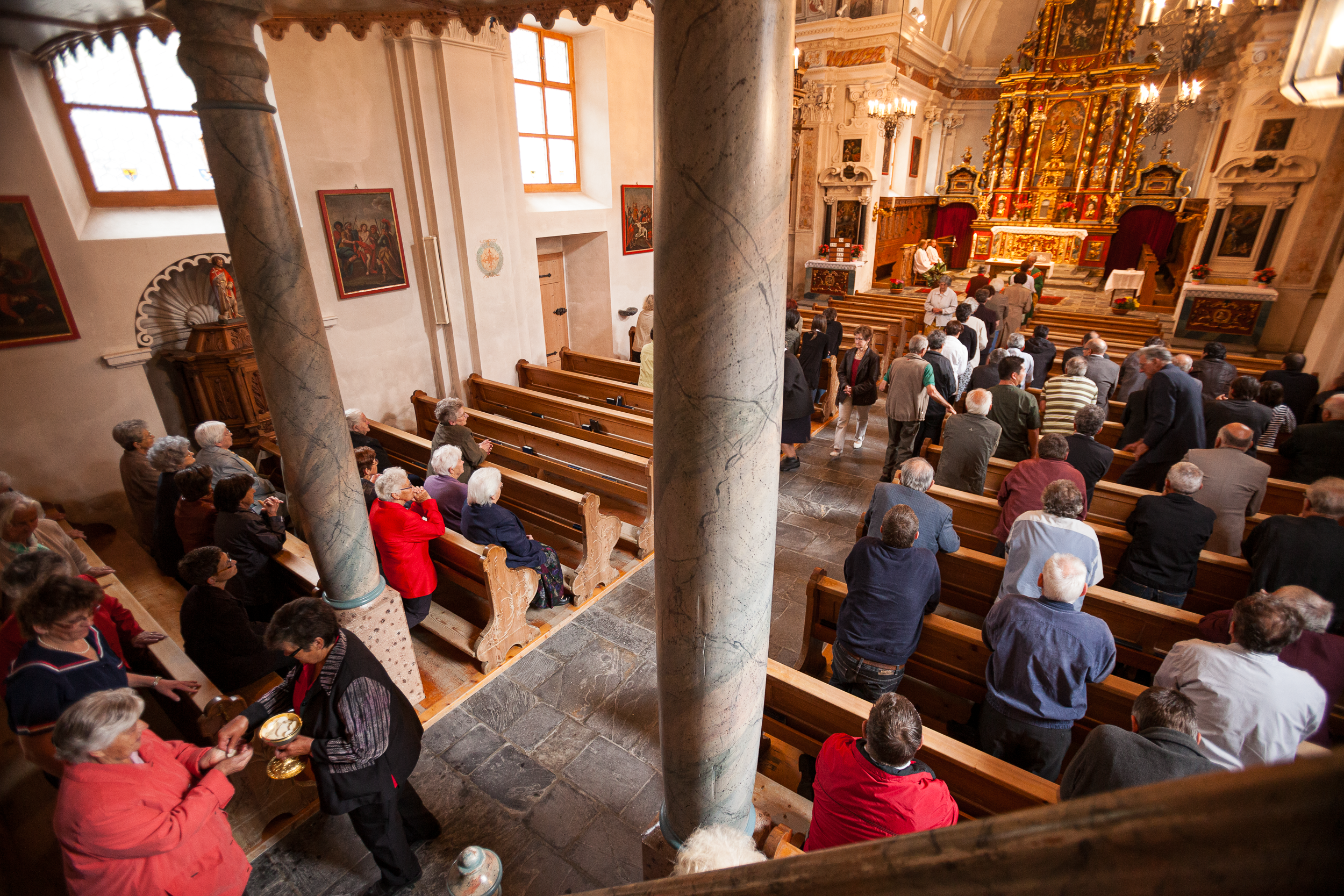
The English texts in particular have a deeper meaning for Soler. “When we finally got a television in 1980 – the last ones in the village, the world’s stories flooded into our living room, destroying our own,” he says.
“I had the feeling that we were living behind the moon,” says Soler. A phrase that his mother also liked to use as a joke. “We’re just from Vrin. We don’t understand the world and it doesn’t understand us.”
It was only in America that Soler realised: “Our story is just as important as all those stories from Hollywood. And for me, it’s even more important.” With the book, he wants to take something from Vrin out into the world.
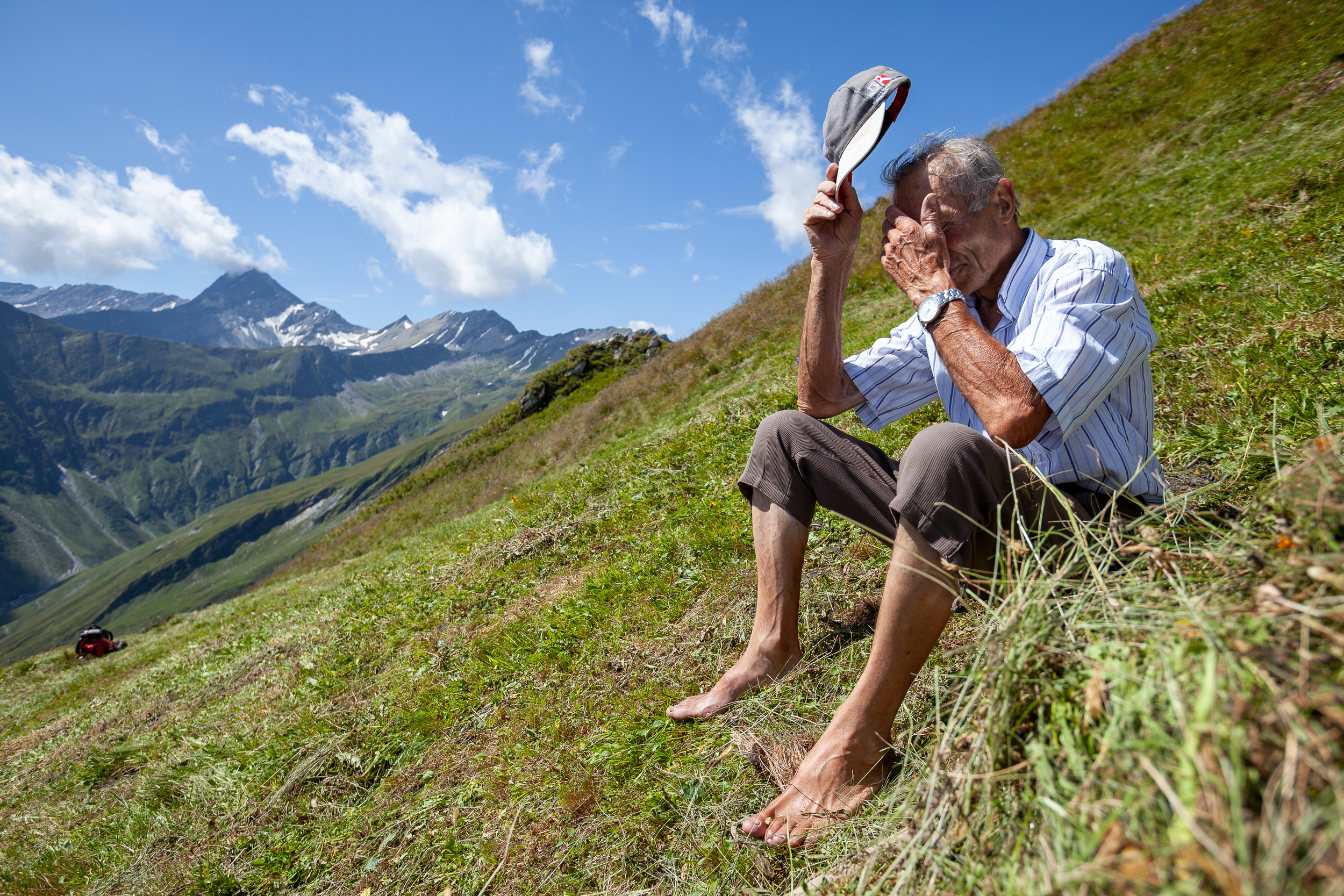
Home through an Emigrant’s Lens focuses on another perspective of the book: that of the emigrant, whose gaze is directed at his homeland from the outside and whose perception of this homeland is gradually changing.
“Like a fish in water that has no idea that it is swimming in water,” explains Soler. “When I emerged from the water and then dived back in, I perceived certain things differently.”
It was small things that caught Soler’s eye. For example, his father, who, since his retirement, had almost exclusively travelled barefoot in the summer – or with Soler’s worn clogs from the 1980s – or the Tgiern Vanescha mountain, which Soler photographed at the same time every year. Based on these images, he can draw conclusions about the weather and the work of the farmers in the particular year. Soler knows: “I had to go away in order to come back emotionally.”

More
Newsletters
Edited by Balz Rigendinger/sb

In compliance with the JTI standards
More: SWI swissinfo.ch certified by the Journalism Trust Initiative












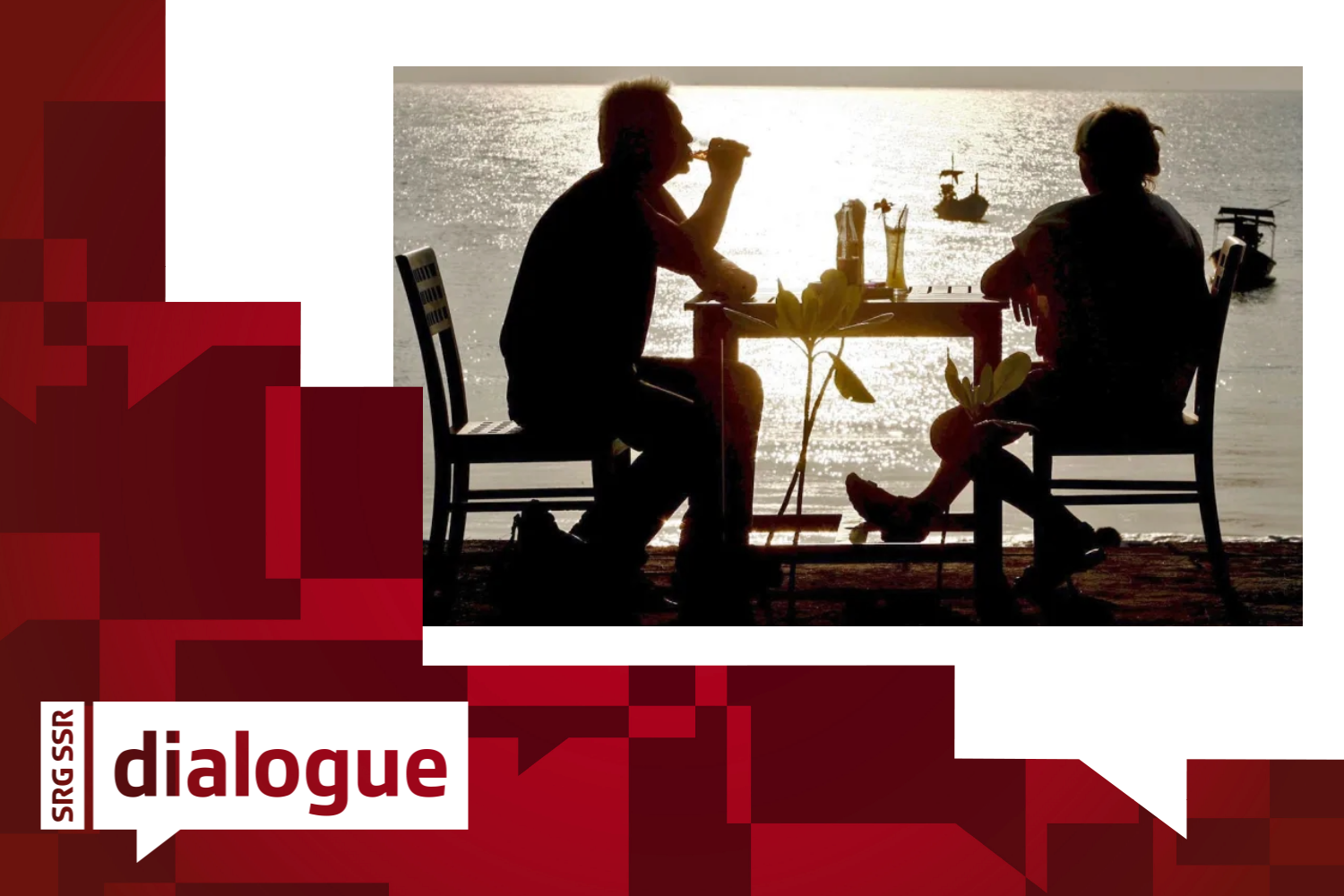

You can find an overview of ongoing debates with our journalists here . Please join us!
If you want to start a conversation about a topic raised in this article or want to report factual errors, email us at english@swissinfo.ch.